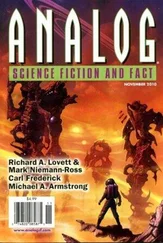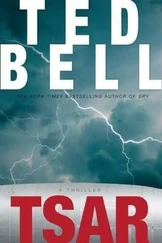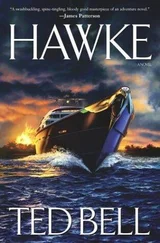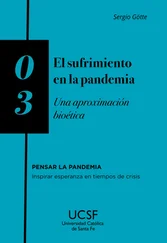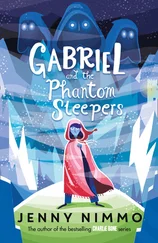Ted Bell - Phantom
Здесь есть возможность читать онлайн «Ted Bell - Phantom» весь текст электронной книги совершенно бесплатно (целиком полную версию без сокращений). В некоторых случаях можно слушать аудио, скачать через торрент в формате fb2 и присутствует краткое содержание. Жанр: Триллер, на английском языке. Описание произведения, (предисловие) а так же отзывы посетителей доступны на портале библиотеки ЛибКат.
- Название:Phantom
- Автор:
- Жанр:
- Год:неизвестен
- ISBN:нет данных
- Рейтинг книги:3 / 5. Голосов: 1
-
Избранное:Добавить в избранное
- Отзывы:
-
Ваша оценка:
- 60
- 1
- 2
- 3
- 4
- 5
Phantom: краткое содержание, описание и аннотация
Предлагаем к чтению аннотацию, описание, краткое содержание или предисловие (зависит от того, что написал сам автор книги «Phantom»). Если вы не нашли необходимую информацию о книге — напишите в комментариях, мы постараемся отыскать её.
Phantom — читать онлайн бесплатно полную книгу (весь текст) целиком
Ниже представлен текст книги, разбитый по страницам. Система сохранения места последней прочитанной страницы, позволяет с удобством читать онлайн бесплатно книгу «Phantom», без необходимости каждый раз заново искать на чём Вы остановились. Поставьте закладку, и сможете в любой момент перейти на страницу, на которой закончили чтение.
Интервал:
Закладка:
“One thing, Alex; I wouldn’t bother telling the beauteous Miss Johansson about your new yacht.”
“Oh? Why not?”
“Two reasons. One, as Kissinger once said of men like himself and me, ‘Power is the ultimate aphrodisiac.’ And, two, as regards yachts, you may be certain I will have already convinced her that mine’s bigger.”
Nineteen
Palo Alto, California
Professor Waldo Cohen was wholly unaware of the fierce mountain storm raging beyond the confines of his small mountain laboratory. Wind-driven rain spattered the windows of the little cedar-shingled cottage, just down the hill from his home. The wind shrieked in the branches of the towering redwood trees, standing silent sentinel all around his sanctum sanctorum.
The professor was oblivious to all but the object on the table before him.
He pulled at his snow-white beard and said, though he was quite alone, “Ah, almost finished, now, mon petite mariposa.” He bent forward over his worktable and adjusted the magnifying glass snorkel. Then he made a minute adjustment to the tiny machine he’d spent every single night of the last six months creating.
“There we are; perfect-o, I should think!”
When he was busy, which was always, his focus was unfailingly laserlike until a project was completed. Concentration was just one of his many qualities of mind. Even at seventy-five, nearing the end of a brilliant career as chief artificial intelligence research scientist at Stanford University, Dr. Cohen’s high-powered brain was as agile as ever. He’d brought a smile to many a graduate student’s face as he paused before a blackboard obliterated with scrawled algorithms and said, “Brains, don’t fail me now!”
During his tenure, Dr. Cohen had been lead research scientist on the 250-million-dollar DARPA (Defense Advanced Research Projects Agency) initiative begun in the year 2000. His wife, Stella, a world-class physicist in her own right, had been his assistant. And his team included a few postdoc scientists, all of them working night and day. Happy times. The team’s initial challenge had been to create the world’s first supercomputer capable of analyzing natural human language and answering complex questions on any subject imaginable. This was just a baby step. They were on a scientific quest to achieve the holy grail state known as “the Singularity.”
They were now on the verge of building a supercomputer that could match the human brain’s staggering ability to make one hundred trillion calculations per second.
That would be the tipping point. The Singularity would occur when machine intelligence actually matched the level of human intelligence. After that, as machine intelligence continued to expand at an exponential pace and humans lollygagged around in the status quo of biological smarts, a measly hundred trillion per, it was, in Cohen’s words, “Whoop-de-doo time.” It was “Katy, bar the door.” In the worst-case scenario, it was “Hold the phone, we forgot to put an off/on switch on Robbie the Robot here!”
Nicknamed “Perseus” by one of Cohen’s postdoc scientists, Dr. Cohen’s “Robot Overlord,” as the press had dubbed it, was so powerful that it could scour its roughly two hundred million pages of stored content-a million books’ worth-and find an answer to any question with confidence in less than three seconds. Perseus had actually appeared on national television quiz shows, and, much to Cohen’s delight, beat the bejeezus out of all the other brainy contestants. Sometimes, to Cohen’s further delight, Perseus even told off-color jokes that had audiences roaring.
When Cohen was presented with his Nobel Prize, it was said of him during his introduction that “scientists have spent lifetimes trying to advance the field of artificial intelligence by inches… what Dr. Cohen and his team at Stanford have done is advance the AI field by miles. For the first time in history, he has given a computer the quality of ‘humanness.’ And things will never be the same.”
The cover of Time magazine, which featured Dr. Waldo Cohen as the Person of the Year, had this quote from him under his portrait: “Things will never be the same.” The article compared his contributions to science to be on a par with Einstein’s.
The old-fashioned black telephone on his desk jangled.
“Jello?” he said into the phone, a joke he still found funny after fifty years.
“Happy anniversary, my dear friend,” he heard the familiar voice say.
Cohen said, “You didn’t forget, little pigeon.”
“I never forget anything, remember?”
“What number?”
“Number?”
“Anniversary.”
“Well, that’s too easy. The big Five-Oh.”
“I’m impressed.”
“I’m impressive. How are you, you old pterodactyl? Still fighting the good fight?”
“Go to YouTube. Put in ‘Perseus Cracks Up Jeopardy! Audience.’ You’ll see how I’m doing. And you?”
“Well, I’m making progress on my own humble little project. I miss your wizened visage looking over my shoulder. And Stanford’s DARPA budgets, to be honest.”
“Where are you?”
“Home. Somewhere in deepest darkest Iran.”
“What are you working on now?”
“Secret. But I’ll give you a clue. Call me when you figure it out. You have a pencil?”
“Shoot.”
“v = 2*pi*f*r.”
“Too easy.*1/sprt(i-((v*v))/c*c)”
“Wrong.”
“Well, it was just a guess.”
“Ha! Call me! Give my love to Stella. Are you taking her out to a fancy restaurant to celebrate or staying home tonight?”
“She is turning home into a fancy restaurant.”
“Give her my love. I’ll be in touch.”
“Noli illigitimi carborundum.”
“It’s not the bastards who get me down, Waldo; it’s mullahs. Talk soon.”
Cohen laughed and replaced the receiver, quickly returning his focus to the object of his affection.
“W ell, my little jewel, it’s time to wrap you up in pretty paper and take you home to Mother,” Cohen said, placing the machine into a gift box filled with cotton. It was a delicate little thing and there was a chance he might drop it, tripping over tree roots in the dark, or slipping in the mud on the climb up the mountainside pathway in the rain.
But he didn’t drop it and he didn’t slip and when his wife of fifty years, Stella, opened the front door, he handed her the beautifully wrapped box and said, “Hello, gorgeous! So what’s for supper?”
I t was lamb. A delicious roast leg of lamb and a bottle of aged Silver Oak Napa Valley cabernet they’d been saving to go with it. They didn’t have such expensive wine every night but, then, this was a very special night. Waldo and Stella Cohen had been married at the Emek Beracha Synagogue in Palo Alto exactly fifty years ago to the day.
As he opened the precious bottle, he sang her a little song he’d just thought of. “Life is a cabernet, old chum, life is a cabernet!”
Stella smiled, her eyes alight with happiness. She looked lovely in the flickering candlelight, her pure white hair framing her heart-shaped face. She sipped the wine, put down her glass, and said, “Do I get to open my anniversary present now?”
Waldo stood up and raised his glass. “Yes, but first a toast to my beloved wife of half a century-”
“And more,” she interrupted.
“And many more, yes, my beloved wife with whom I have discovered a paradox. If I love until it hurts, then there is no hurt, but only more love. Happy fiftieth anniversary, dearest Stella.”
“And to you, my darling man, all my love.”
He cleared his throat and said, “If I may quote my favorite poet on the subject of love, ‘Two such as you, with such a master speed, cannot be parted nor swept away from one another once you are agreed that life is only life forevermore together wing to wing and oar to oar.’ ”
Читать дальшеИнтервал:
Закладка:
Похожие книги на «Phantom»
Представляем Вашему вниманию похожие книги на «Phantom» списком для выбора. Мы отобрали схожую по названию и смыслу литературу в надежде предоставить читателям больше вариантов отыскать новые, интересные, ещё непрочитанные произведения.
Обсуждение, отзывы о книге «Phantom» и просто собственные мнения читателей. Оставьте ваши комментарии, напишите, что Вы думаете о произведении, его смысле или главных героях. Укажите что конкретно понравилось, а что нет, и почему Вы так считаете.

